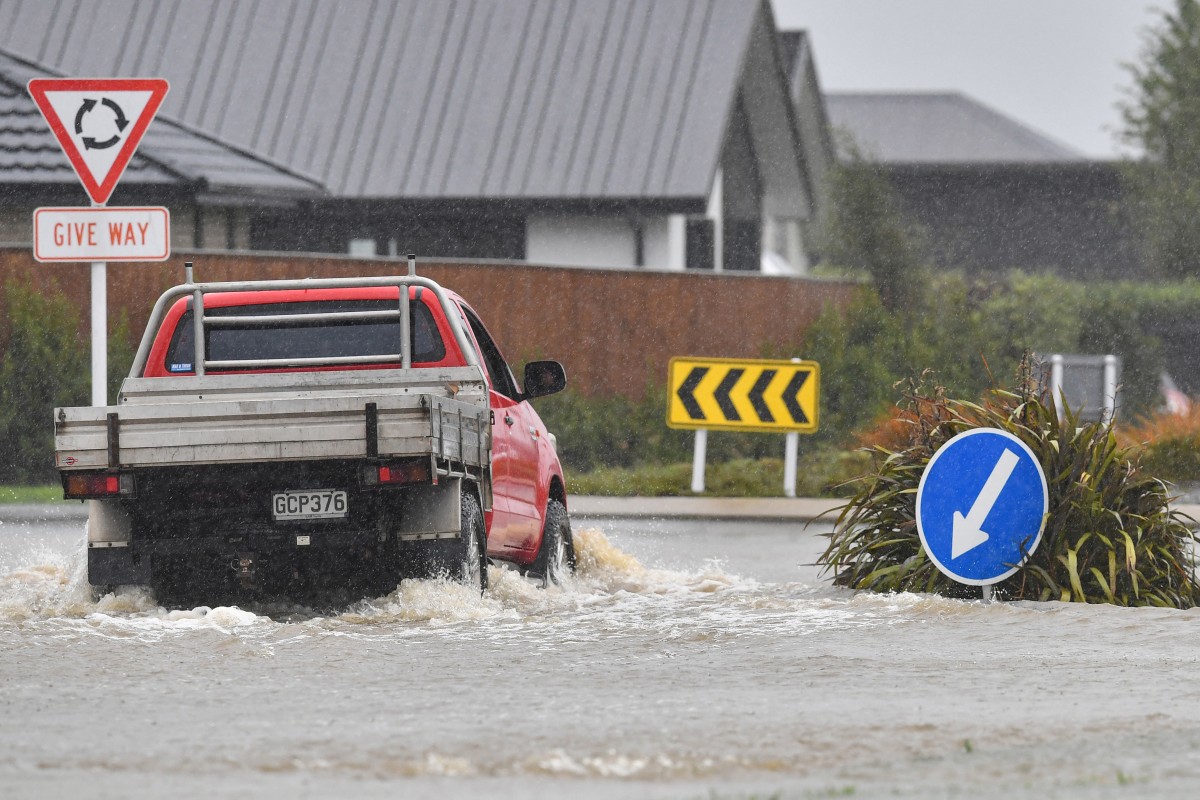
WELLINGTON - The New Zealand government is considering ending bailouts for homeowners affected by floods and landslides as it develops a framework for addressing the impact of climate change.
The government has often stepped in after natural disasters to buy properties, spending billions of dollars in recent years as climate change-driven severe weather events increase in intensity and frequency.
The government "won't be able to keep bailing out people in this way", New Zealand Prime Minister Christopher Luxon told state-owned Radio New Zealand this week.
"We need to find a way to manage these events going forward and who takes responsibility and is there a shared responsibility."
His comments come as parts of the South Island start cleaning up after floods this month, which affected roughly 800 homes, according to local authorities. The government on Wednesday announced NZ$600,000 ($356,700) in compensation for flood-affected farmers, growers and forestry owners.
By 2060 at least 14,500 homes worth approximately NZ$12.5 billion could suffer at least one damaging flood, around 300 to 400 homes annually, according to Climate Sigma research.
Climate Minister Simon Watts said in an email that the government has been working to get bipartisan support on a national adaptation framework to give New Zealand certainty.
"This is a complex and challenging work," he said. "It is important that any change is enduring."
ALSO READ: New Zealand to allow carbon capture, storage to reduce emissions
Any policy changes would likely be introduced slowly. A recent independent report commissioned by the Ministry of Environment suggested a transition over 20 years to allow pricing to adjust as expectations of government bailouts are tempered.

For Graham McIntyre the problem of flooding is immediate with water surging through his property when it rains heavily.
"It is like a wave that comes through," he said, explaining the land he bought 25 years ago north of Auckland has three rivers running through it.
He wants authorities to buy his house in Taupaki and to relocate the nearby town centre. Both were flooded in 2023.
'Can't do anything'
Policymakers, researchers and property experts both in New Zealand and Australia have for some time warned climate change is a risk that home buyers have not priced in.
The Ministry of Environment report recommended including the need for more information about the potential impact of natural hazards so owners can make their own decisions about whether to move or stay and bear the costs of that decision.
Property records in New Zealand increasingly note whether there is a flood or landslide risk or history of either and homeowners in vulnerable areas are worried their houses will become less valuable.
"You can't do anything," McIntyre said. "You can't sell up. You can't change it."
Kelvin Davidson, chief property economist at Cotality, said it was difficult to gauge the impact of growing climate risks on property prices due to limited data on events like flooding and varying acceptance of risk by buyers.
READ MORE: New Zealand aims to meet net zero 2050 target in 2044
"The rubber is not hitting the road in terms of pricing," he said.


